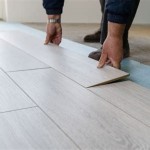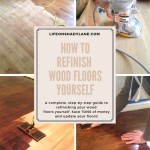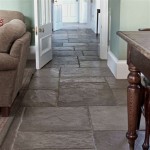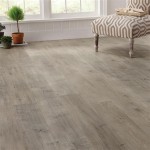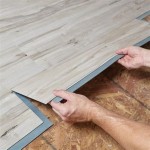Is 1/2 Inch Engineered Hardwood Flooring Good Quality?
Engineered hardwood flooring has become a popular choice for homeowners seeking the aesthetic appeal of solid hardwood with enhanced stability and versatility. Among various thicknesses available, 1/2 inch engineered hardwood is a common option. Determining whether a 1/2 inch engineered hardwood flooring is of "good quality" involves considering several factors, including construction, wear layer thickness, core material, installation location, and intended use.
Engineered hardwood flooring consists of multiple layers bonded together. A genuine hardwood veneer, also known as the wear layer, is adhered to a core made of plywood, high-density fiberboard (HDF), or softwood. This layered construction provides greater dimensional stability compared to solid hardwood, making it less susceptible to expansion and contraction due to fluctuations in humidity and temperature. The overall thickness of the flooring, in this case, 1/2 inch, is just one aspect of its quality. A thicker overall measurement does not automatically translate to superior quality. Other factors play a more significant role.
Wear Layer Thickness: A Critical Indicator of Quality
The wear layer is the top layer of real hardwood that provides the flooring's beauty and durability. This layer is what you see and walk on, and it determines how well the floor will resist scratches, dents, and wear over time. A thicker wear layer generally indicates higher quality and a longer lifespan. Wear layers are typically measured in millimeters (mm). For 1/2 inch engineered hardwood, the wear layer thickness can vary significantly, typically ranging from 1mm to 6mm or even more.
A wear layer of 2mm or less is considered a thinner veneer, suitable for areas with light foot traffic, such as bedrooms or guest rooms. While these floors might be more budget-friendly, they are more prone to damage and may require replacement sooner. A wear layer between 3mm and 4mm is considered a mid-range option, offering a good balance of durability and affordability. It's suitable for moderate traffic areas like living rooms and hallways. A wear layer of 4mm or more is considered a premium option, offering superior durability and longevity. These floors are well-suited for high-traffic areas, homes with pets, and commercial spaces. They can also typically be sanded and refinished once or twice, extending their lifespan considerably.
Therefore, when evaluating the quality of 1/2 inch engineered hardwood, paying close attention to the wear layer thickness is crucial. A 1/2 inch flooring with a thicker wear layer will generally outperform a thicker overall board with a thinner wear layer.
The Role of the Core Material
The core of engineered hardwood flooring is the foundation upon which the wear layer is supported. The materials used for the core significantly impact the flooring's stability, water resistance, and overall performance. Common core materials include plywood, HDF, and softwood. Each offers varying degrees of performance characteristics.
Plywood cores are often considered the most stable and water-resistant option. They consist of multiple layers of wood veneer glued together in alternating directions. This cross-ply construction creates a strong and dimensionally stable core that resists warping and twisting, even in environments with fluctuating humidity levels. Higher grade plywood cores, using more plies and higher quality adhesives, offer superior performance.
HDF cores offer good stability and density. HDF is made from wood fibers that have been compressed under high pressure. It is denser than plywood, providing a solid base for the wear layer. While HDF offers good resistance to indentation, it is more susceptible to water damage than plywood. Exposure to moisture can cause HDF to swell and potentially delaminate.
Softwood cores are the least expensive option and are generally found in lower-quality engineered hardwood flooring. While they provide some degree of stability, they are less dense and more susceptible to moisture damage than plywood or HDF. Softwood cores are generally not recommended for areas prone to moisture or high traffic.
The quality of the core material significantly affects the overall performance of the engineered hardwood flooring. A denser, more water-resistant core, such as plywood or high-quality HDF, will contribute to a more durable and long-lasting floor covering.
Installation Location and Intended Use
The suitability of 1/2 inch engineered hardwood flooring also depends on where it is being installed and how the space is used. Different locations have varying levels of humidity, foot traffic, and potential for water exposure. Understanding these factors is crucial in selecting the appropriate flooring and ensuring its longevity.
In areas with high moisture, such as basements or bathrooms, a 1/2 inch engineered hardwood with a plywood core and a thicker wear layer is recommended. The plywood core offers better water resistance, minimizing the risk of warping or swelling. A thicker wear layer provides added protection against surface water spills and cleaning. Thoroughly sealing the seams and edges during installation is also critical in preventing moisture penetration.
For high-traffic areas like hallways, living rooms, and kitchens, a 1/2 inch engineered hardwood with a thicker wear layer (3mm or more) is essential. This will withstand the wear and tear of everyday use, reducing the likelihood of scratches and dents. Consideration should be given to the finish applied to the wear layer, as some finishes provide better scratch resistance than others. For example, floors with aluminum oxide infused finishes are often more durable.
In areas with radiant heat, it's important to choose an engineered hardwood flooring specifically designed for use with radiant heating systems. These floors are constructed to withstand the temperature fluctuations without warping or cupping. Check with the manufacturer to ensure the 1/2 inch engineered hardwood is compatible with the specific type of radiant heat system.
The type of subfloor also plays a role in determining the suitability of 1/2 inch engineered hardwood. The subfloor must be level, clean, and dry before installation. If the subfloor is uneven, it may need to be leveled using a self-leveling compound. An underlayment can also provide cushioning, reduce noise, and act as a moisture barrier. Some engineered hardwood floors come with an attached underlayment, simplifying the installation process.
The method of installation can also impact the longevity of the floor. Common installation methods include glue-down, nail-down, and floating. Gluing down the flooring provides the most stable and secure installation, but it can be more labor-intensive. Nailing down is a common method for solid hardwood flooring, but it can also be used with some thicker engineered hardwood floors. Floating floors are easier to install and can be a good option for DIY projects, but they may not be as stable as glued-down or nailed-down floors.
Ultimately, whether a 1/2 inch engineered hardwood flooring is of "good quality" depends on the specific product characteristics and how well it aligns with the intended use and installation environment. A careful evaluation of the wear layer thickness, core material, and installation considerations is essential in making an informed decision.
Selecting a reputable brand and carefully reviewing the product specifications and warranty information is recommended. Consulting with a flooring professional can provide valuable insights and guidance in choosing the best option for your specific needs and budget. Proper installation and ongoing maintenance are also crucial in ensuring the longevity and performance of any engineered hardwood floor.
The finish applied to the surface of the wear layer also significantly contributes to the overall quality and durability of engineered hardwood flooring. Different types of finishes offer varying levels of scratch resistance, water resistance, and UV protection. Common finishes include polyurethane, acrylic, and oil-based finishes.
Polyurethane finishes are the most common and offer good durability and scratch resistance. They are also relatively easy to clean and maintain. Acrylic finishes are similar to polyurethane but may offer slightly better UV protection, preventing the floor from fading over time. Oil-based finishes penetrate the wood, providing a natural look and feel. They are less resistant to scratches and water damage than polyurethane finishes, but they can be easily repaired and re-oiled.
The number of coats of finish also affects the durability of the floor. Floors with multiple coats of finish will generally be more resistant to scratches and wear. Some manufacturers also offer enhanced finishes with additives like aluminum oxide, which provide superior scratch resistance.
Regular cleaning and maintenance are essential in preserving the beauty and longevity of any engineered hardwood floor, regardless of its thickness or quality. Sweep or vacuum regularly to remove dirt and debris. Use a damp mop with a pH-neutral cleaner specifically designed for hardwood floors. Avoid using harsh chemicals, abrasive cleaners, or excessive water, as these can damage the finish and the core material.
Placing mats at entryways can help trap dirt and prevent it from being tracked onto the floor. Using furniture pads under heavy items can protect the floor from scratches and dents. Regularly inspecting the floor for signs of wear and tear and addressing any issues promptly can help prevent further damage. With proper care and maintenance, a 1/2 inch engineered hardwood floor can provide years of beauty and performance.

4 Things To Know Before An Engineered Hardwood Floor Carlisle Wide Plank Floors

3 8 Inch Vs 1 2 Hardwood Floors Reallyfloors America S Est Flooring

Hardwood Floor Versus Engineered Wood Which Is Better For Your Home

5 X 1 2 Engineered European White Oak Matte Natural Hardwood Floorin Hardwoods4less

Malibu Wide Plank Roosevelt French Oak 1 2 In T X 7 5 W Tongue Groove Wirebrushed Engineered Hardwood Flooring 23 3 Sq Ft Case Hdmrtg537ef The Home Depot

5 X 1 2 Hickory Traditional 3 Ply Unfinished Engineered Hardwood Flooring 4 2mm Enginereed Wood

5 X 1 2 Hickory Character Hand Sc 3mm Wear Layer Prefinished Engineered Hardwood Flooring Discount

Yosemite Oak 1 2 In T X 5 W Tongue And Groove Wire Brushed Engine Dekorman

4 3 X 1 2 Tigerwood Prefinished Engineered Hardwood Flooring

7 1 2 X Engineered Hickory Huntington Stain Hardwood Flooring Hardwoods4less
Related Posts

